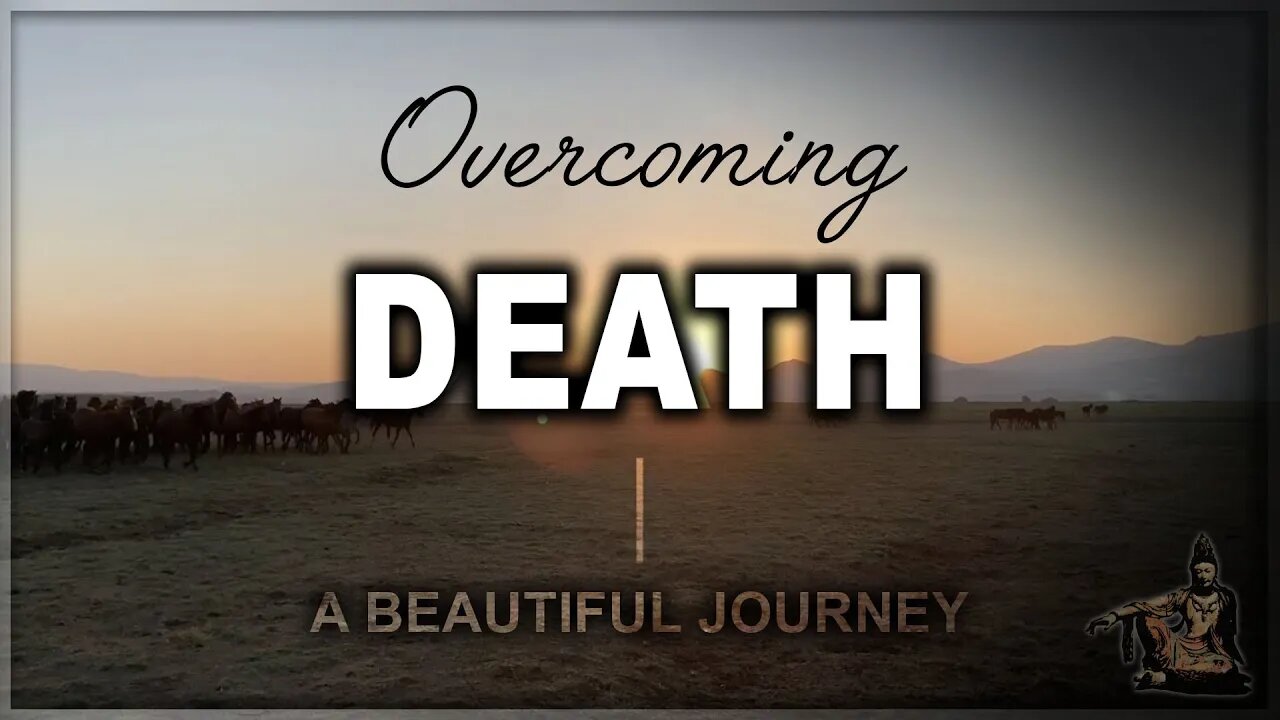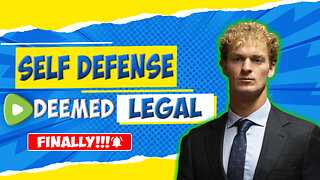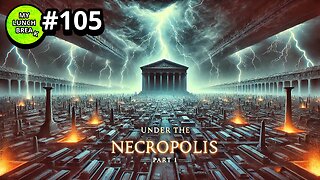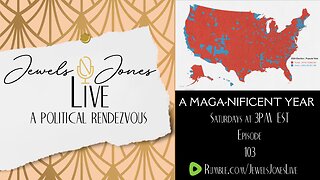Premium Only Content

Overcoming The Fear of Death | Short Documentary 2022 | Full Video
If you are looking for a way to overcome the fear of death, I hope this video will help you on your beautiful journey.
My aim is to keep this as simple as possible. After all, we’re just talking about the modest topic of death, consciousness, and what it means to exist…
Most of my life I have been terrified by the idea of death. I believe this fear began when I was around the age of 10. I have a vivid memory of my aunt explaining to me that one day my grandfather would die. My young mind neither understood nor wanted to accept that. I didn’t want my grandfather to go away; to not be here anymore; to “die.” My reality was shattered as I struggled to make sense of this new idea. Thus far, I had no ontological framework to support me, which left behind a deep trauma regarding death. Moreover, a society that seemed to offer little guidance on this taboo subject.
Of course, my aunt didn’t intend on causing me an existential crisis, but in a way, that’s what happened. Nevertheless, I wouldn’t change any of it. Perhaps this one event guided me on a search for knowledge and truth –discovering myself in the process. Enabling me to be here now, humbly sharing this experience.
Before you can better see through my eyes, allow me to ask you a series of questions so that you can begin to see the path that led me here: “What is the nature of information?” What does it mean to “communicate” and “interpret?” How do you define “language?” Do you believe it is possible for a language to exist without a conscious mind to create, communicate, and interpret? And what of the language of maths, and genetic information? What about laws? And the laws of nature, energy, thermodynamics? Is it possible for laws to exist devoid of creators and interpreters of such laws? What is autonomy?
I want to emphasize the following questions, which may seem the simplest of the bunch: What does the word “nothing” mean; and, can you point to an example of nothing?
So here we are, is this not a primary fear regarding death, that we will cease existing; disappearing into nothingness? Often, we use the word “nothing” to refer to seemingly empty space. But is that space empty or is it full of something? If the space between you and I was “nothing” it wouldn’t exist. The word “nothing” is merely a concept, as “nothing” does not exist. That is in fact how the word is defined, “nonexistence,” but colloquially we misrepresent the word to be the temporary absence of something; amongst other uses.
When something IS, when something exists, it exists forever. It cannot be caused to cease existing. Something cannot become nothing. Even this phrase creates a paradox and shows misunderstanding. Indeed, you can take a stone and smash it into pieces, grind it into dust and powder, and allow it to blow away in the wind, but you haven’t caused anything to cease existing. You have changed the form; the collection of parts. But all that made up the stone still exists. None of the parts magically blinked out of existence.
So, this leads us to a big question? What about consciousness? Can consciousness cease existing?
First, before we answer that… What is consciousness? Is it something? We need to understand both what consciousness is and how it relates to other, seemingly “non-conscious,” aspects of reality. To do so, let us explore some classical perspectives.
Descartes defines thought in the following way: “Thought. I use this term to include everything that is within us in such a way that we are immediately aware [conscious] of it. Thus all the operations of the will, the intellect, the imagination and the senses are thoughts. I say ‘immediately’ so as to exclude the consequences of thoughts; a voluntary movement, for example, originates in a thought.”
Thomas Nagel's famous “what it is like” criterion aims to capture another and perhaps more subjective notion of being a conscious organism. According to Nagel, a being is conscious just if there is “something that it is like” to be that creature, i.e., some subjective way the world seems or appears from the creature's mental or experiential point of view. In Nagel's example, bats are conscious because there is something that it is like for a bat to experience its world through its echo-locatory senses, even though we humans from our human point of view cannot emphatically understand... (see video for more)
***
Namasté! We are evolving together. Heal your mind, body, and soul with logic based: science, theory, mystery, and philosophical discourse. Enjoy our yoga and meditation music: relax, meditate, study, sleep, relieve stress, and chillout.
Let's grow the community: like & subscribe 🙏
Relevant References & Links:
https://en.wikipedia.org/wiki/Observer_(quantum_physics)
https://en.wikipedia.org/wiki/Thoth
https://en.wikipedia.org/wiki/Maat
https://plato.stanford.edu/entries/consciousness/
https://en.wikipedia.org/wiki/Orphism_(religion)
***
#fearofdeath #overcomingfear #death
-
 59:44
59:44
PMG
1 day ago $1.28 earned"BETRAYAL - Johnson's New Spending Bill EXPANDS COVID Plandemic Powers"
30.7K1 -
 6:48:50
6:48:50
Akademiks
14 hours agoKendrick Lamar and SZA disses Drake and BIG AK? HOLD UP! Diddy, Durk, JayZ update. Travis Hunter RUN
156K27 -
 11:45:14
11:45:14
Right Side Broadcasting Network
9 days agoLIVE REPLAY: TPUSA's America Fest Conference: Day Three - 12/21/24
340K28 -
 12:19
12:19
Tundra Tactical
14 hours ago $12.74 earnedDaniel Penny Beats Charges in NYC Subway Killing
62.8K12 -
 29:53
29:53
MYLUNCHBREAK CHANNEL PAGE
1 day agoUnder The Necropolis - Pt 1
153K51 -
 2:00:10
2:00:10
Bare Knuckle Fighting Championship
3 days agoCountdown to BKFC on DAZN HOLLYWOOD & FREE LIVE FIGHTS!
55.7K3 -
 2:53:01
2:53:01
Jewels Jones Live ®
1 day agoA MAGA-NIFICENT YEAR | A Political Rendezvous - Ep. 103
148K36 -
 29:54
29:54
Michael Franzese
17 hours agoCan Trump accomplish everything he promised? Piers Morgan Article Breakdown
134K56 -
 2:08:19
2:08:19
Tactical Advisor
21 hours agoThe Vault Room Podcast 006 | Farwell 2024 New Plans for 2025
198K11 -
 34:12
34:12
inspirePlay
1 day ago $6.00 earned🏆 The Grid Championship 2024 – Cass Meyer vs. Kelly Rudney | Epic Battle for Long Drive Glory!
95.7K8